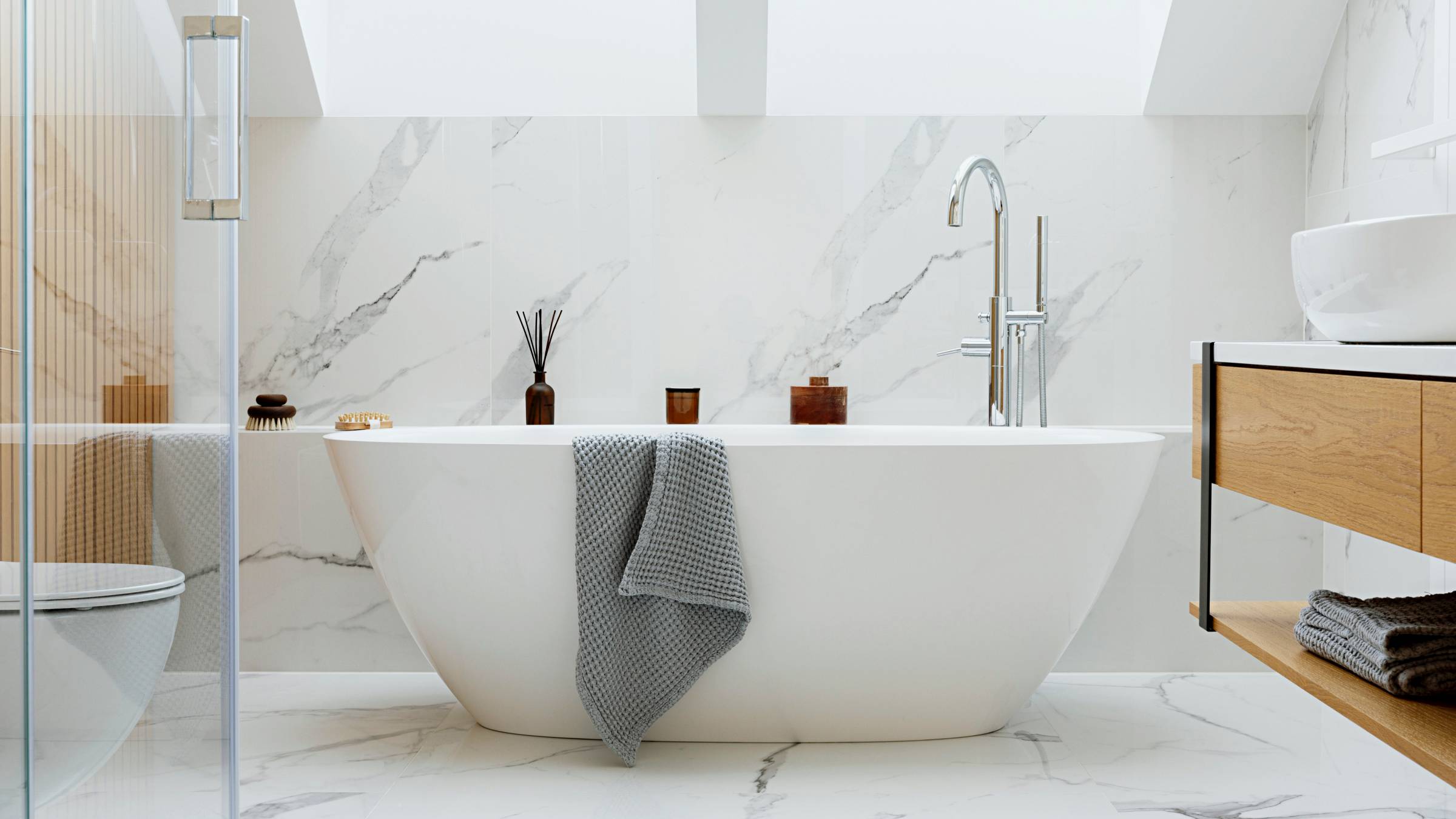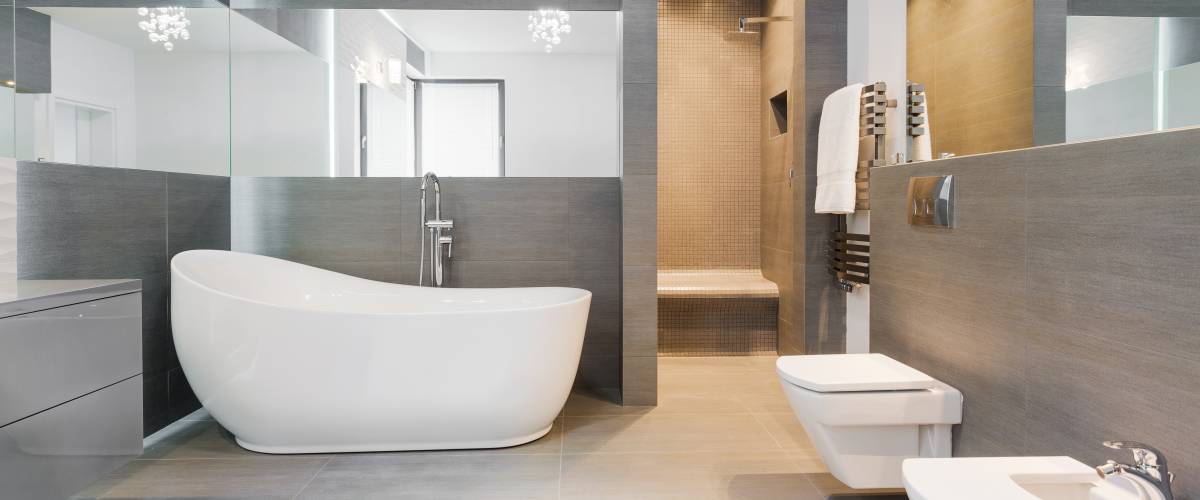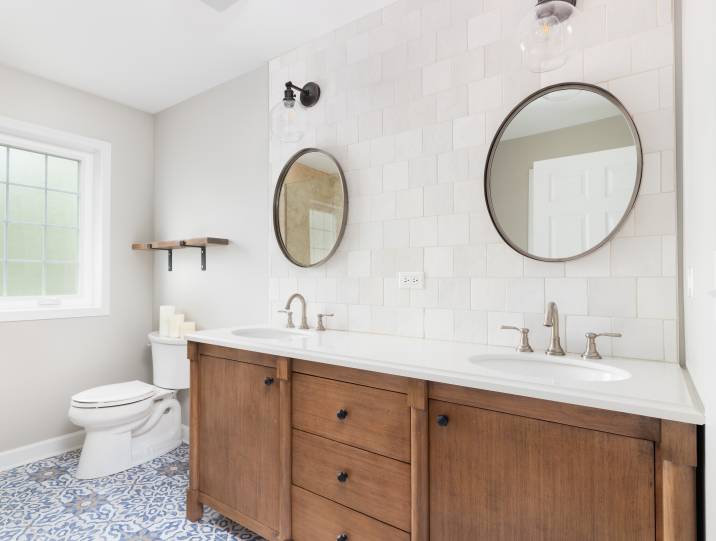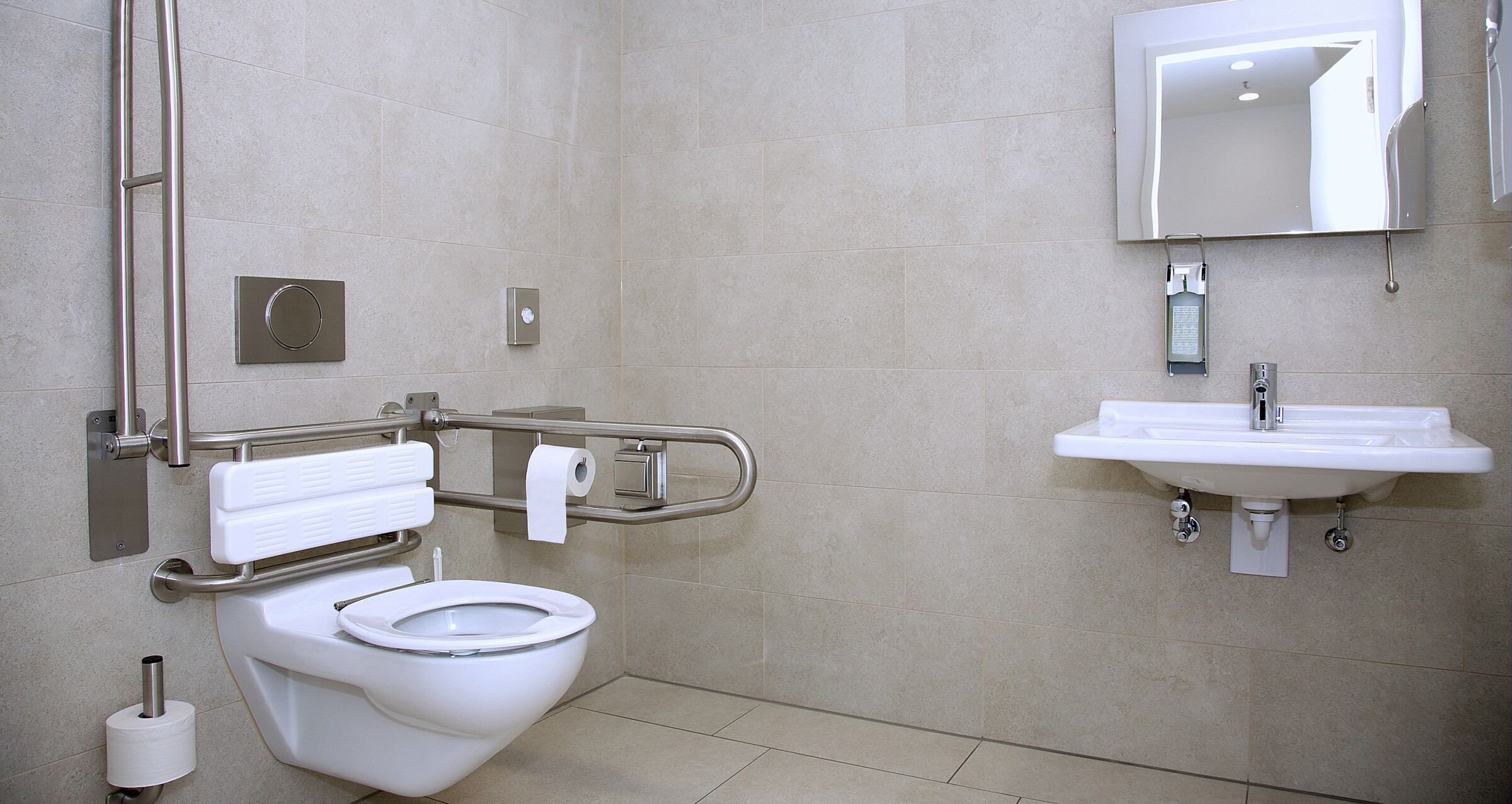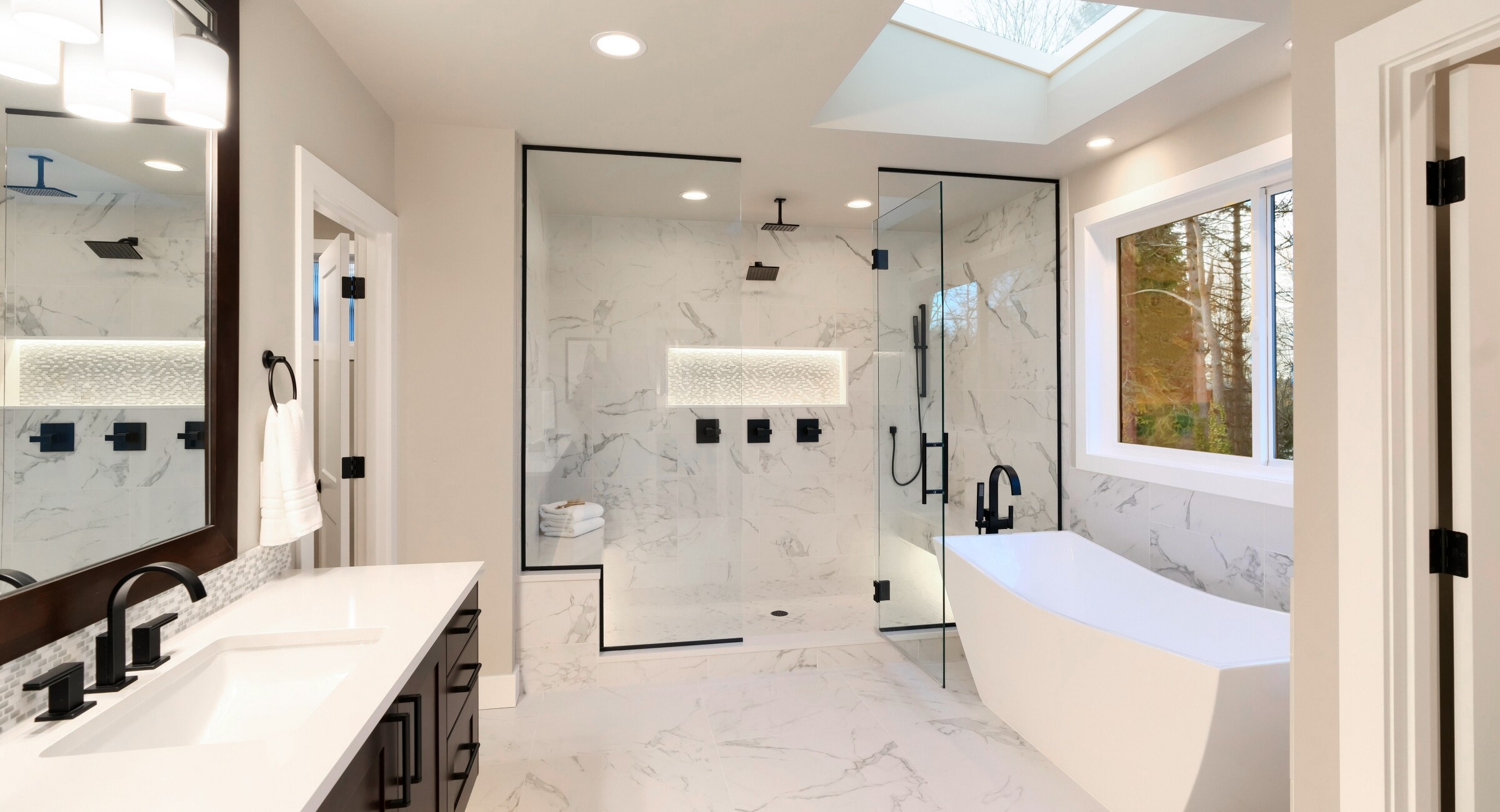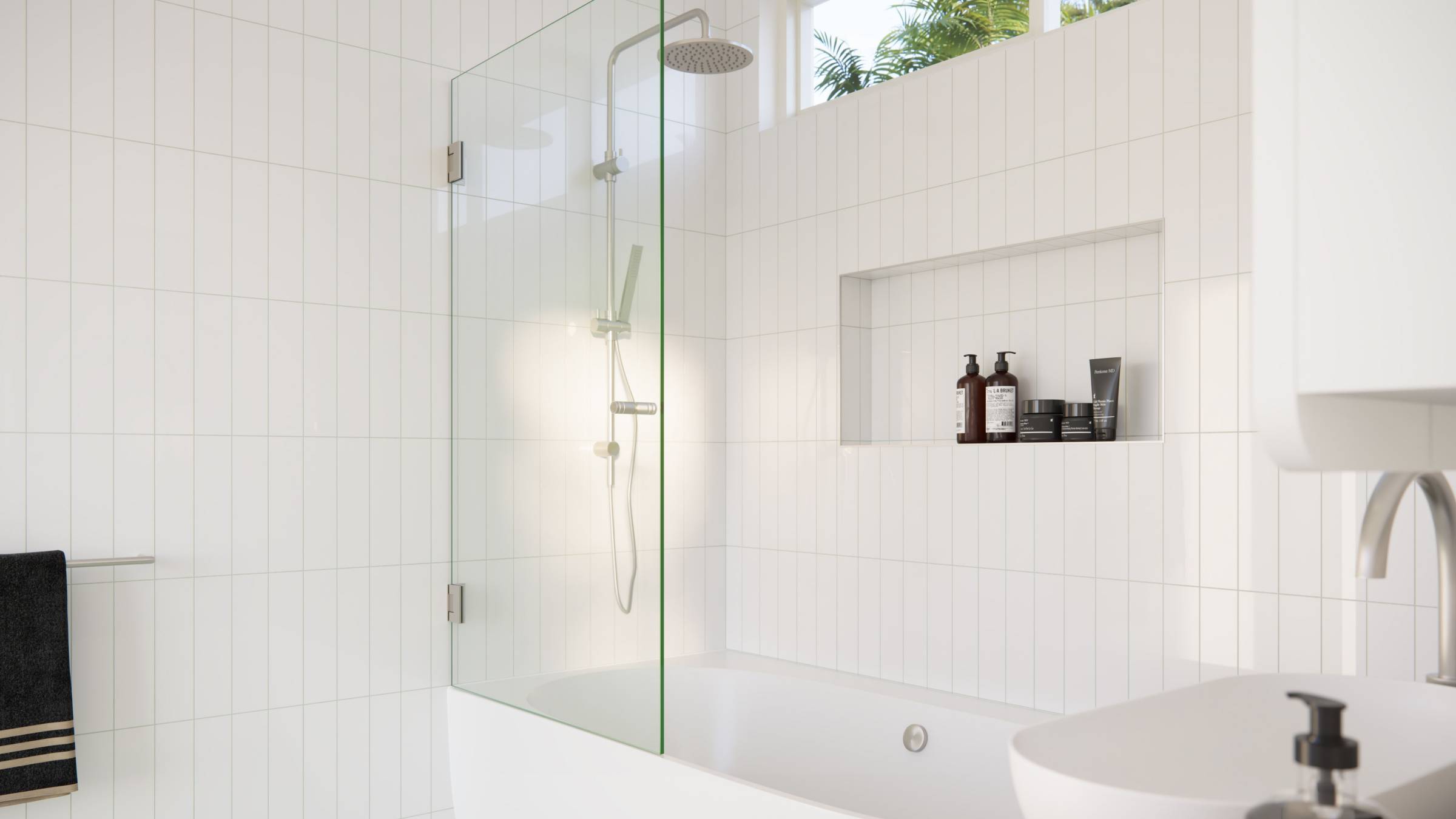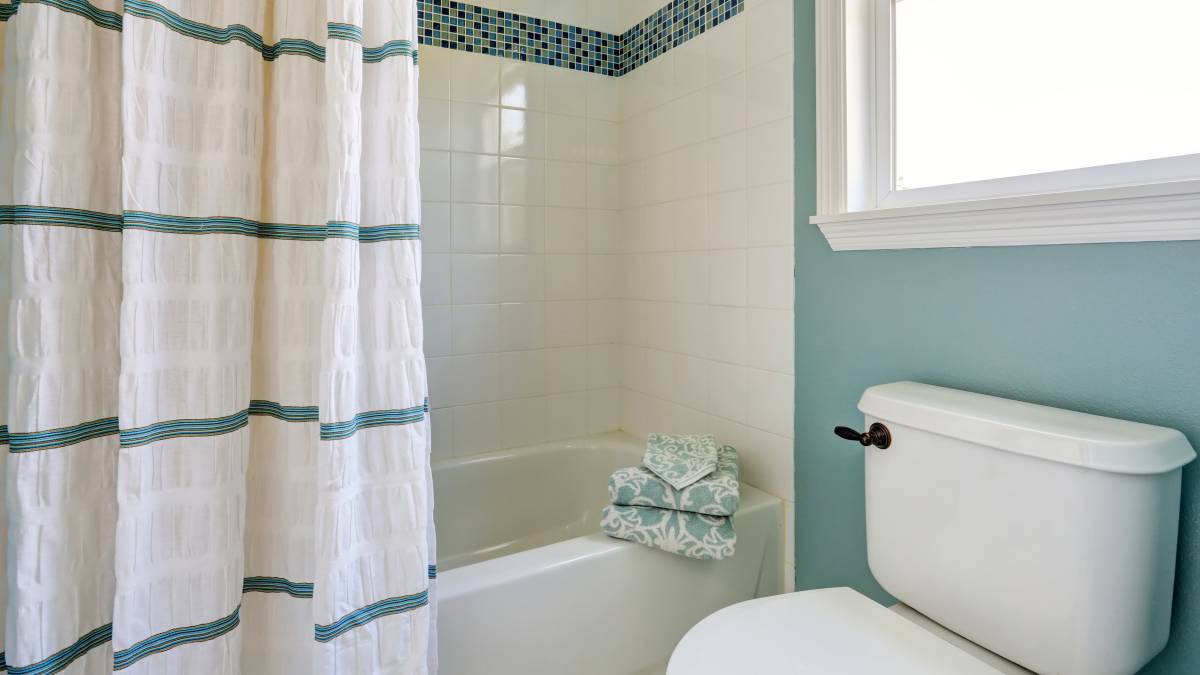- Home/
- Guides/
- Bathroom Renovation/
- Bathroom Flooring Options
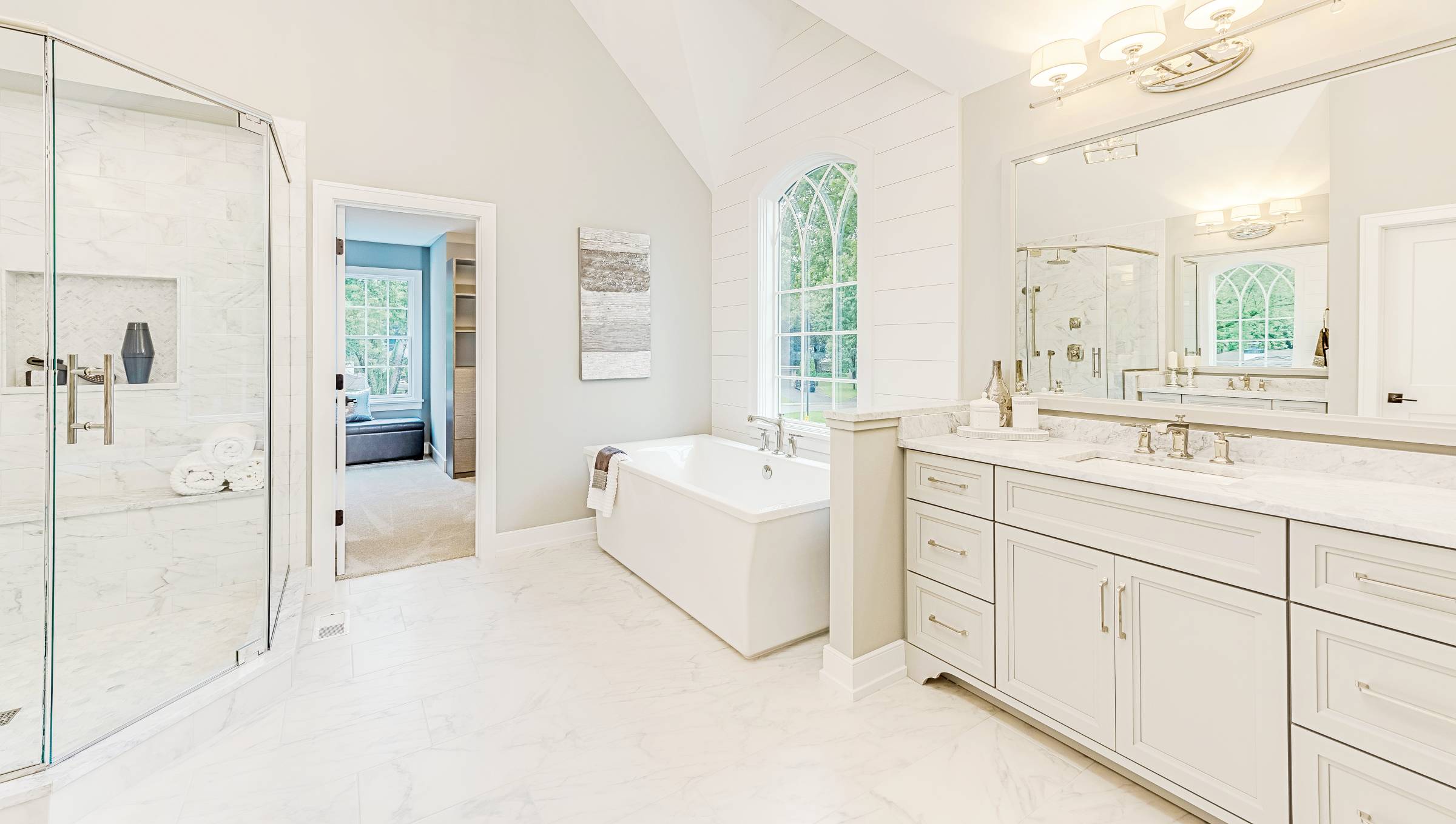
10 Popular bathroom flooring options and their pros & cons
Exploring your material options for a better bathroom floor
Hire a flooring expertLast Updated on
When renovating a home, one of the most critical decisions one can make involves the type of flooring to install. It can be even more important when the part of the house being addressed is the bathroom. This is because making the right call among various bathroom flooring options ensures a convenient experience and fewer safety risks in one of the most utilised areas of a residential property.
If you’re still weighing different choices and considering the importance of various factors, you’ve come to the right place. This article can make the difficult task of picking the best flooring for your bathroom an easy job.
What should you consider when choosing bathroom flooring?
Factor |
Description |
Cost |
If you’re working with a tight budget, cheap bathroom flooring can be a favourable option compared to pricier ones. But you should also consider the long-term costs you may incur in floor upkeep or replacement. |
Appearance |
Choosing the right shade, size, and texture for your flooring is essential if you want a bathroom with visual harmony. |
Durability |
Having durable flooring means facing fewer possible hazards from broken or damaged floor pieces. It also translates to saving time and effort because you won’t be replacing your floor for a long time. |
Maintenance |
If you lead a busy lifestyle, it’s in your best interest to go with a bathroom flooring type that’s easy to clean and maintain. |
Waterproofness |
Choosing waterproof flooring for the bathroom is a good way to prevent water damage and mould growth. |
Slip Resistance |
Having slip-resistant flooring in your bathroom, especially in the shower area, can reduce the likelihood of accidents and damage. |
What types of bathroom flooring materials are popular today?
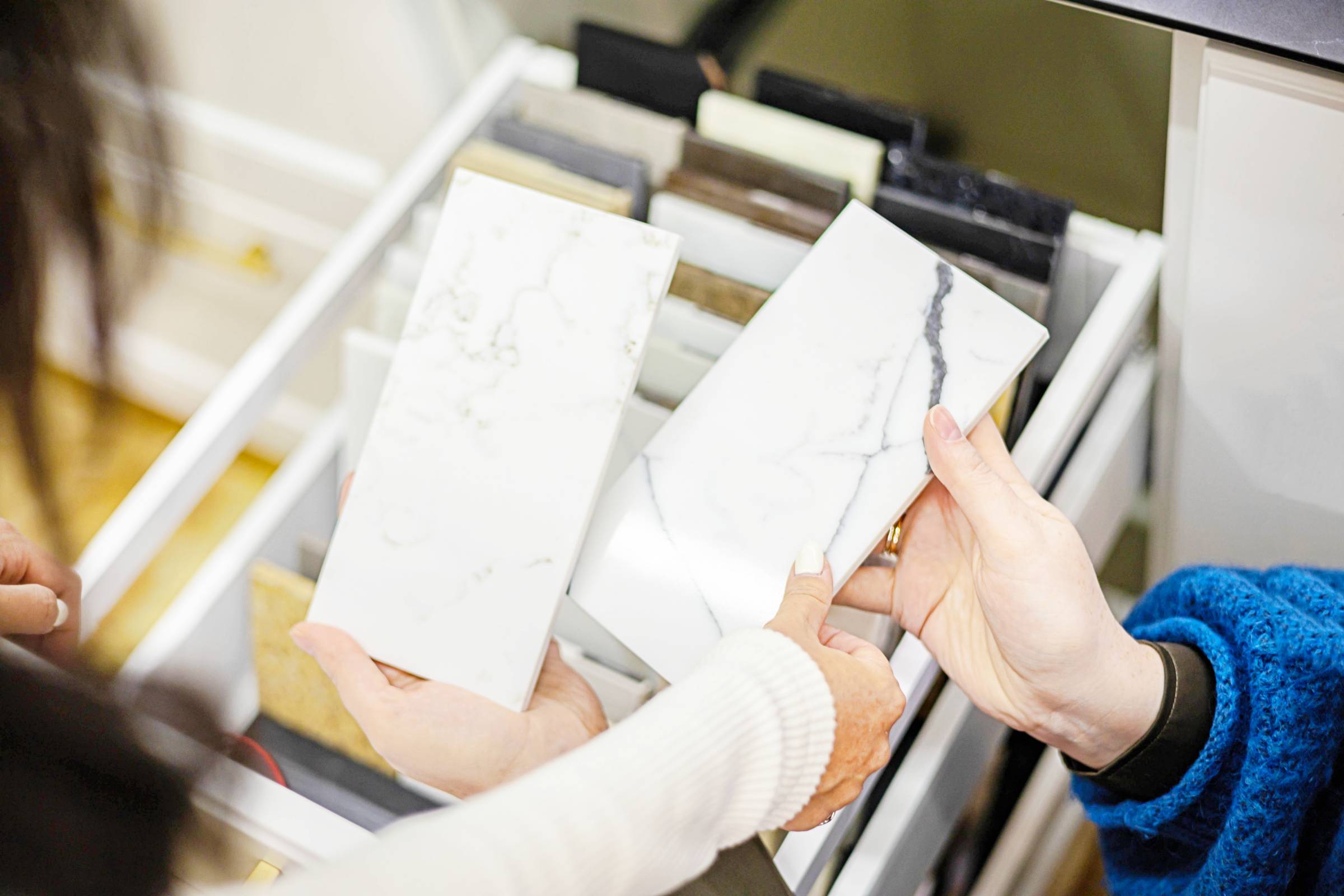
When renovating a bathroom, many people focus on design-related tasks, including determining the layout and painting the walls. They also spend a lot of time contemplating the perfect choice among different types of bathroom flooring. With all the possible colours, shapes, and materials, there are seemingly infinite options.
In making a decision, one has to also factor in the bathroom’s overall design and configuration to prevent costly renovation mistakes. To make the overwhelming process easier for you, here’s a summary of various bathroom floor material options that may fit your needs and preferences:
1. Porcelain
Porcelain bathroom tiles are a popular choice among renovators for different reasons. Since they are water- and stain-resistant, cleaning them is a piece of cake. Additionally, they can fit various bathroom themes—ranging from rustic to modern—since they come in a vast array of designs. However, note that extremely glossy porcelain tiles are not apt for bathrooms since they can cause slips and falls when wet. They can also be pricier than other flooring options.
2. Ceramic
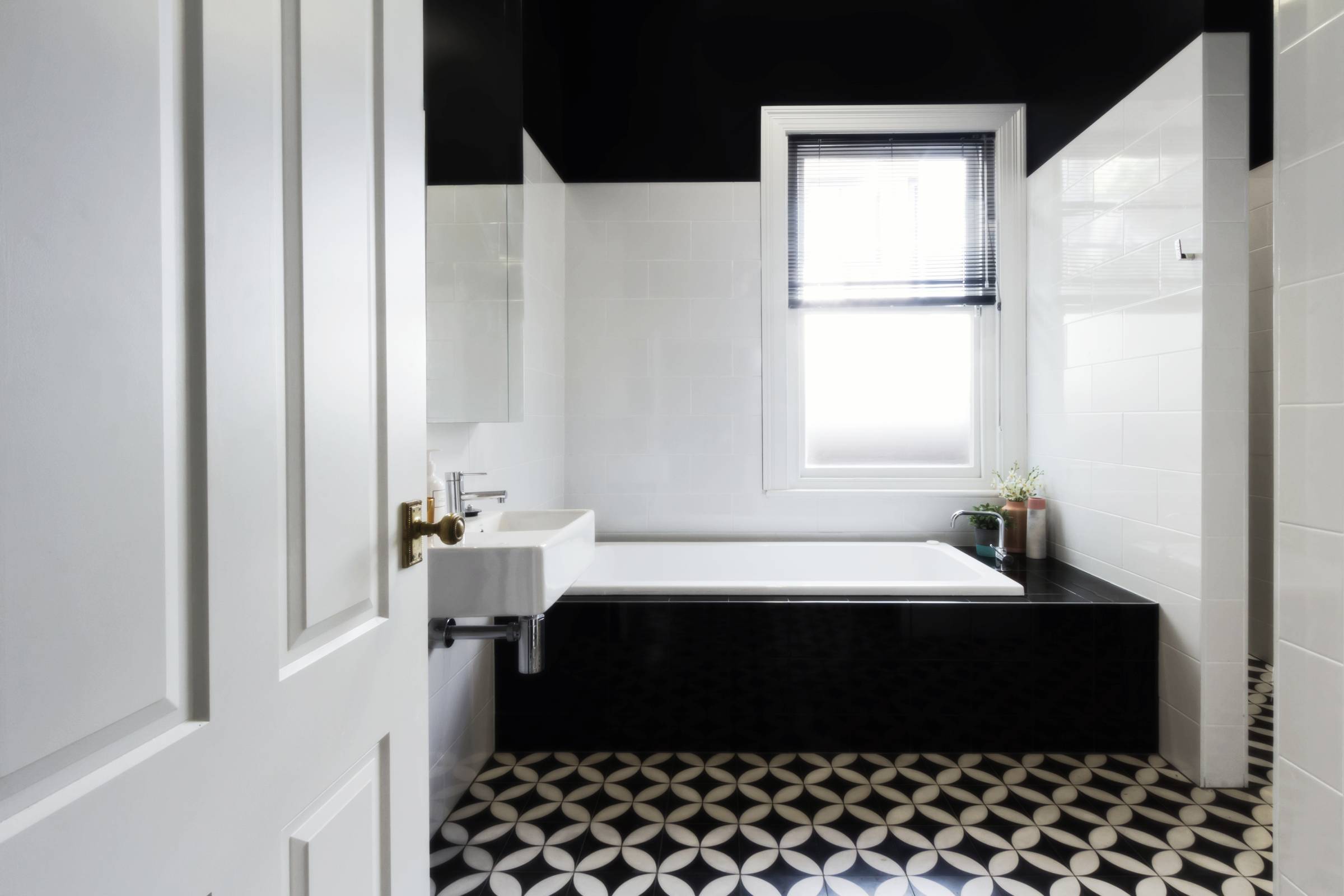
Ceramic tiles are a common bathroom flooring in the UK and the rest of the world. Like porcelain tiles, they are made of clay, sturdy, and easy to clean. They are also available in different designs and are water-resistant when properly glazed. However, depending on the finish, they, too, can be slippery and pose potential risks. An advantage they have over their porcelain counterparts is their affordability.
3. Vinyl
Vinyl, just like the flooring options mentioned above, is especially hardwearing and comes in a wide range of looks. It is also slip-resistant and does not require extensive upkeep. But it has a selling point over ceramic and porcelain: Luxury vinyl flooring can mimic the appearance and texture of wood and marble while still maintaining an affordable price point.
4. Linoleum
Linoleum is an easy-to-install and cost-effective flooring material that comes in different patterns. Just like vinyl, it is water-resistant and durable. However, it is more prone to discolouration and damage. But if being sustainable is your main concern, linoleum can be an ideal bathroom flooring option since it is made of eco-friendly materials.
5. Stone
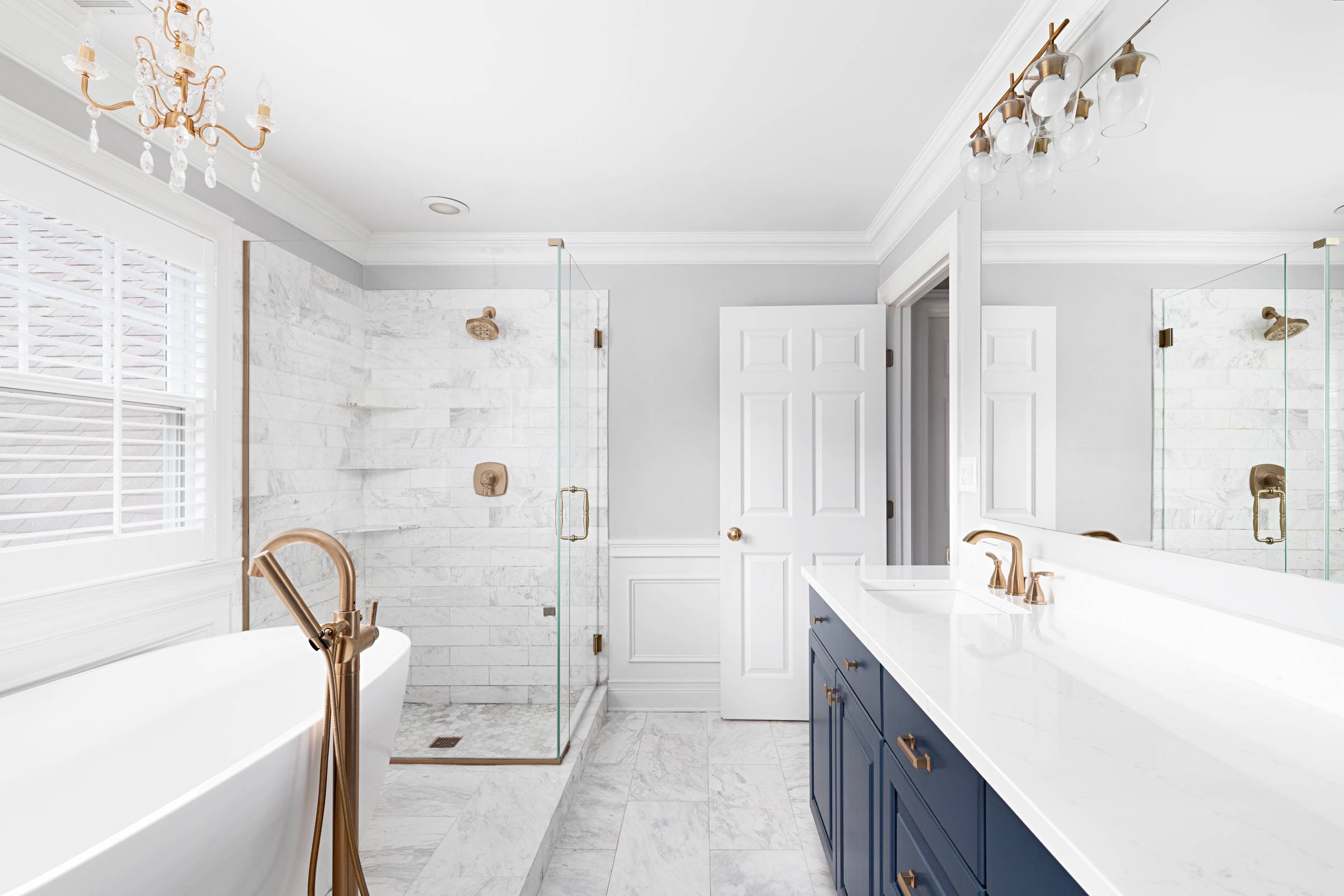
Stone is one flooring material that can add gravitas to your bathroom. It is available in various classy colours and textures and is already tried and tested in terms of durability. Some common types are marble and limestone. Note that proper installation and regular maintenance are important to retain natural stone’s quality and water resistance. It is also not the most cost-effective option if you’re working with a limited budget.
6. Wood
Not the most popular flooring for bathrooms, wood has a reputation for being prone to water damage. However, engineered wood flooring, which has multiple layers and a coating finish, can make it a viable option for your bathroom. It can be long-lasting if maintained properly, which involves not letting it become soaking wet to prevent water penetration. Moreover, despite being considered expensive, it is a more economical choice than good ol’ hardwood flooring.
7. Bamboo
Bamboo, like wood, has many positive qualities, including its longevity, sustainability, and ability to be engineered and coated with a protective layer. Since it is typically produced in its natural colour, it does not come in a wide range of shades. In addition, water and moisture damage, scratches, and warping are always possibilities unless extreme caution is exercised in its use and maintenance. Price-wise, bamboo and hardwood are comparable to each other.
8. Concrete
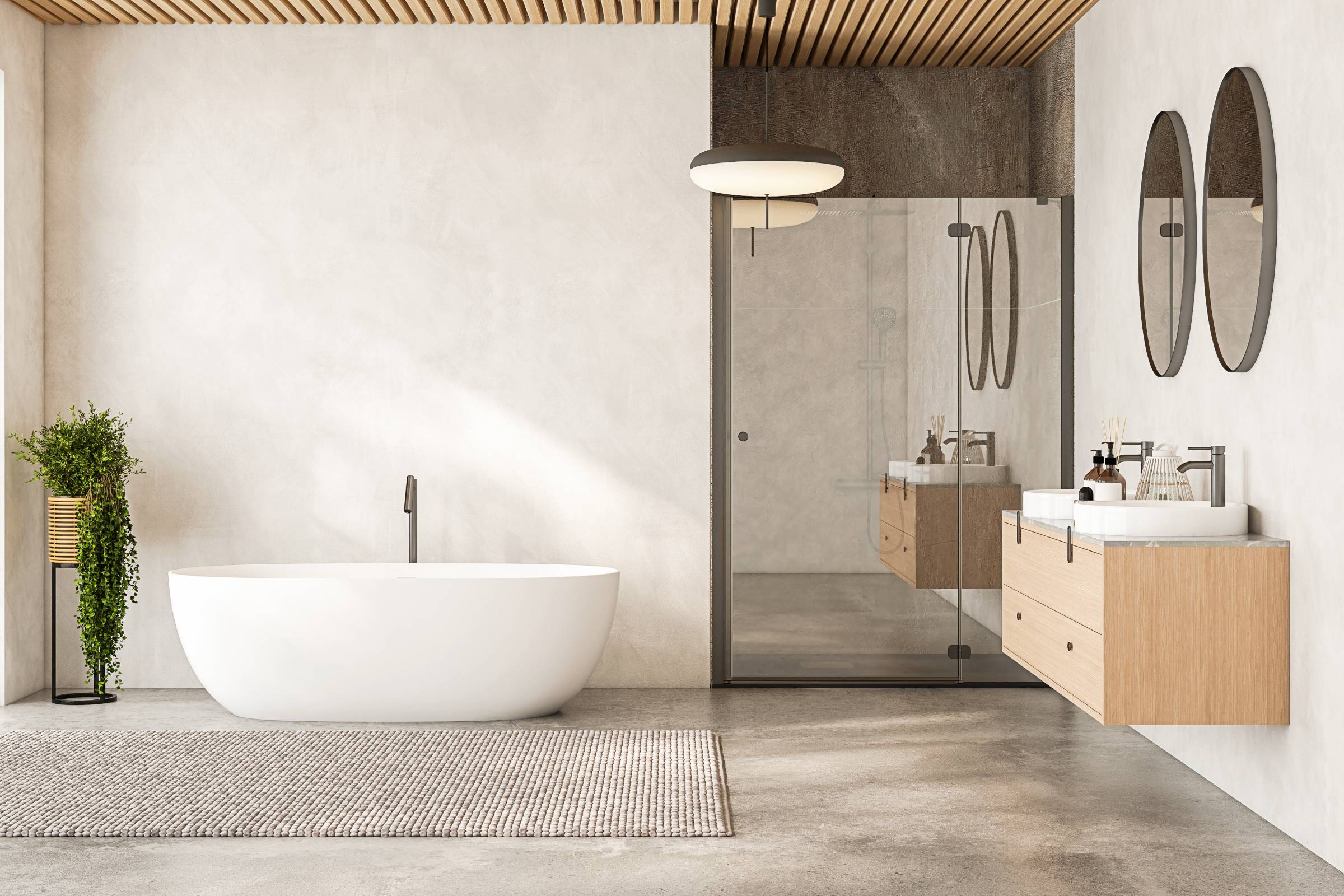
If you want inexpensive flooring for the bathroom that’s easy to maintain and long-lasting at the same time, concrete may be the material you’re looking for. It suits certain design philosophies, such as brutalist and industrial, but can also work as a blank canvas for other themes. However, what comes with its water resistance is its tendency to be slippery when wet. Additionally, it’s not the most kid-friendly material due to its hard surface and inability to retain heat.
9. Cork
Like the other natural materials on this list, cork requires a sealant layer to make it less prone to water damage. With its predisposition to scuffs and stains, it’s also not the most durable flooring for bathrooms. But one of the good things about cork is that it can be installed with ease and is not as hard as concrete. Looks-wise, it can adapt to different bathroom designs due to its neutral colours. If you are considering installing it, know that the cost of cork flooring can rival that of bamboo or hardwood.
10. Rubber
Rubber flooring is ideal in a bathroom that will be utilised several times a day. This is because it’s very sturdy and resistant to normal wear and tear. Moreover, it’s easy to clean and isn’t a good environment for mould and fungus. But do take note that this water-resistant material can cost a pretty penny, especially if you’re opting for the premium variety.
Achieve your dream bathroom with Airtasker
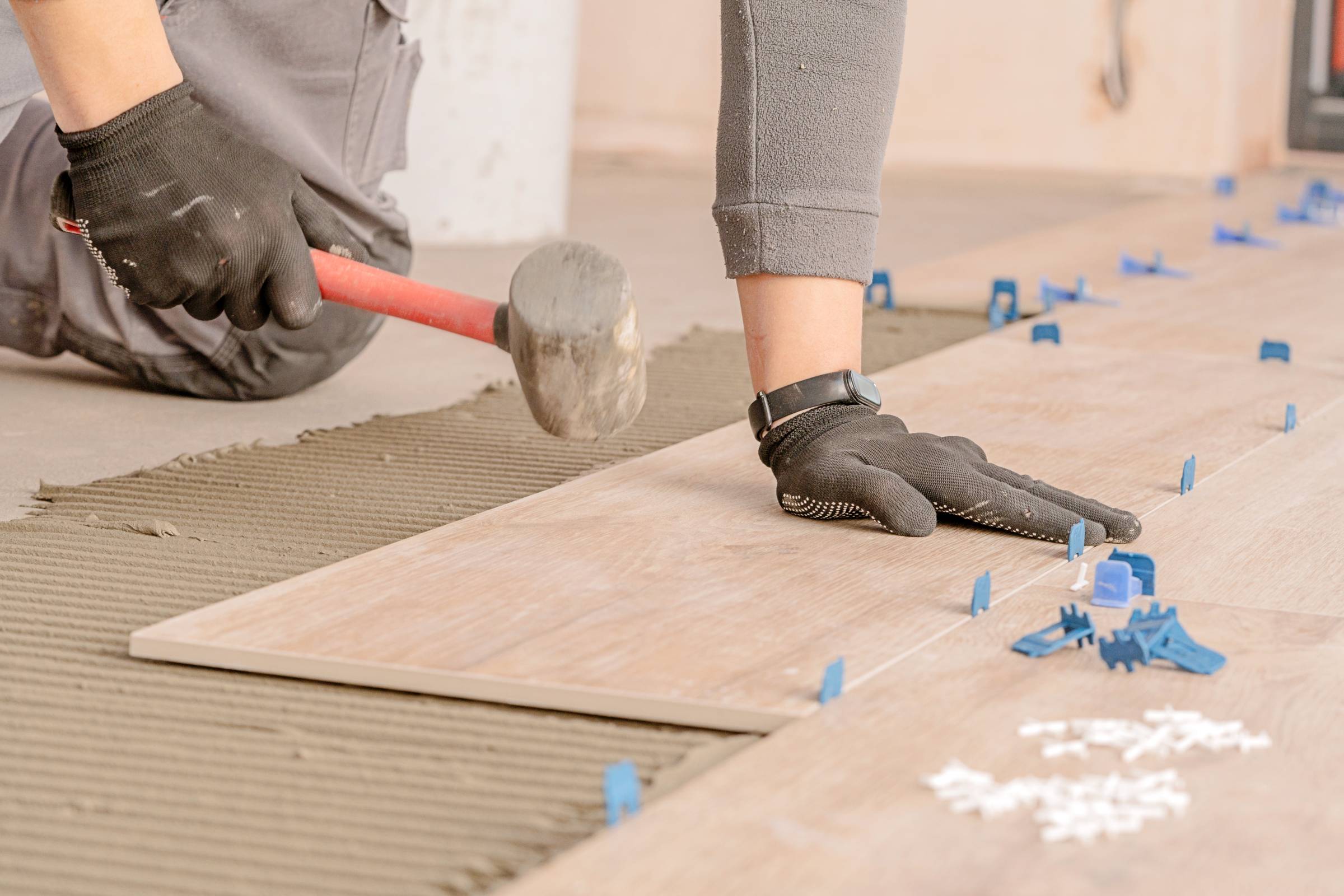
If you need help ticking off bathroom flooring installation in your renovation checklist, all you need to do is post a task on Airtasker. It has a directory of professional renovators—including those specialising in tile installation—ready to respond to your job ad. To find the best pro for the task, it’s important to include relevant details in your post, such as:
Your location;
The size of your bathroom;
The type of flooring material to be installed; and
Your budget.
Once Taskers begin responding, you can check people’s reviews of them to see if they’re a good fit for the job you have for them.
FAQs on bathroom flooring
Yes, installing bathroom flooring yourself is doable if you have the right tools and skills. However, it’s better to leave it to the professionals if the material you’re dealing with is not easy to set in place or if underfloor heating can complicate things.
The length of the flooring installation would depend on the size of your bathroom and the type of material. Bathroom floor tiles made of ceramic or porcelain can usually be set within a few hours to a day. Meanwhile, materials like wood and concrete can take several days to install.
Those that create the impression of spaciousness are good options. For instance, you can choose flooring material that’s the same colour as your bathroom walls to give the illusion of continuity and roominess.
The best flooring materials for high-traffic bathrooms are those that are extremely durable and easy to maintain, such as rubber, concrete, and natural stone.
Find bathroom renovations, fast
Find a Bathroom Renovator
Related articles
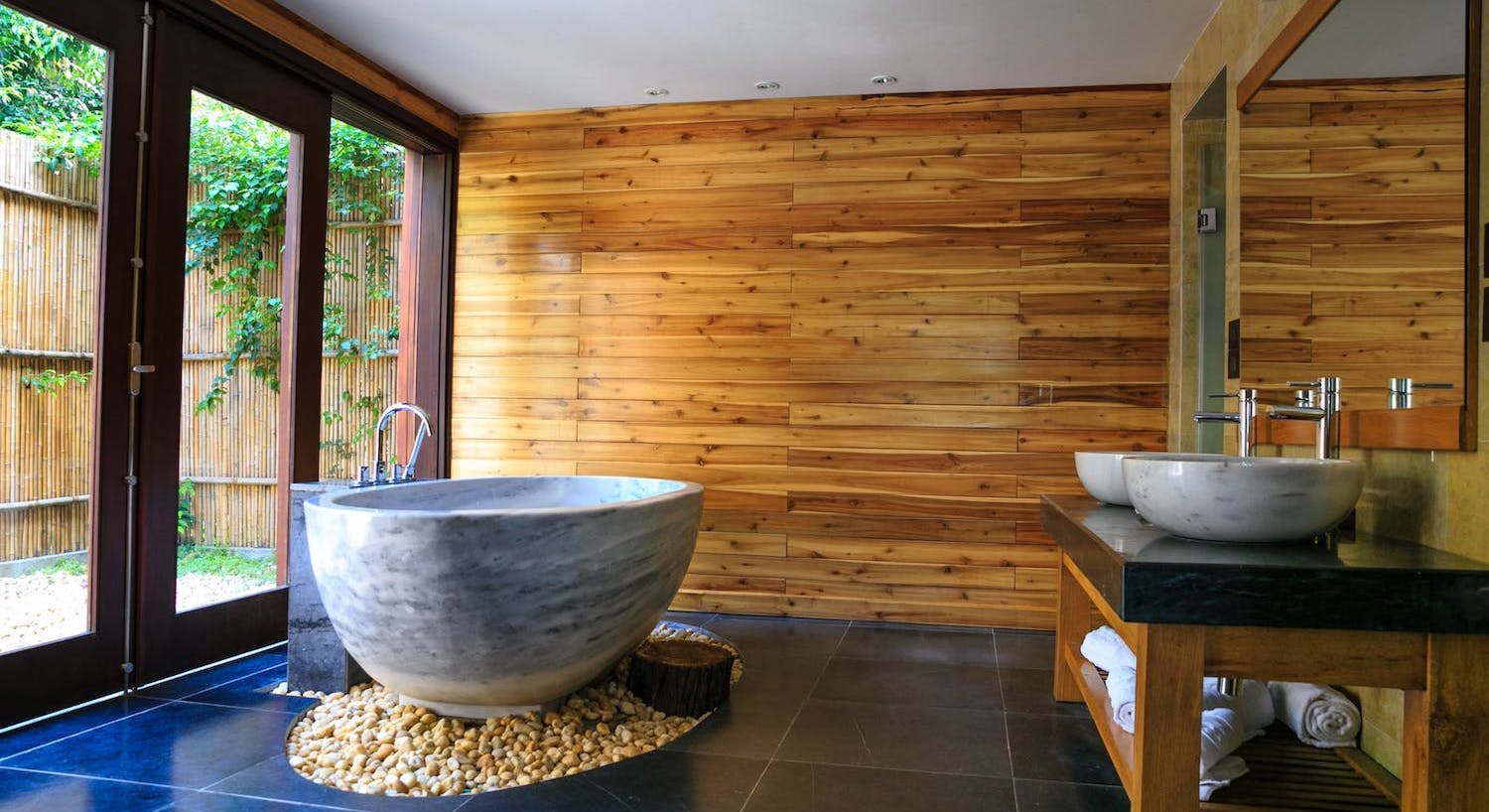
How to Remodel a Bathroom
Read more
Related price guides
